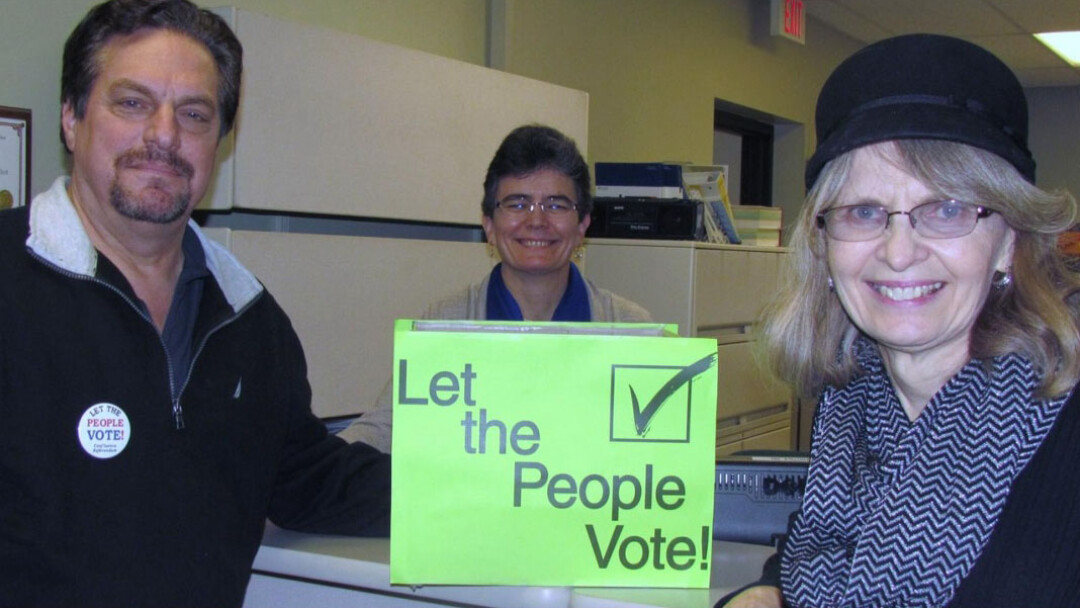Backers of Confluence referendum have enough signatures for ballot

It was Boxing Day, and the Citizens Referendum Committee marked the occasion in a literal fashion by delivering a big box of petitions to Eau Claire City Hall. The documents contained the signatures of 4,935 city voters, more than enough to place a referendum on the April 1 ballot indirectly aimed at the proposed Confluence Project.
If allowed to proceed by the City Council and approved by city voters, the referendum would mandate another referendum before the city could spend more than $1 million on “dramatic, musical, or artistic” facilities, such as the proposed Confluence Project. In October, the City Council approved a $5 million conditional pledge toward the $77 million public/private project, which would include a university/community performing arts center and a multiuse building featuring commercial space and student housing. At the time, referendum proponents argued that city voters themselves – not just their elected representatives – should have a say in the Confluence Project.
“I believe people really feel like they’re disenfranchised by government at every level, not just local,” referendum committee chairman Mike Bollinger said at a Thursday, Dec. 26, press conference announcing the end of the petition drive. While the group legally had 60 days to collect the necessary signatures, they did so in just over a month (they began Nov. 22 and finished Dec. 23). In addition, they collected 36 percent more than the minimum 3,619 signatures required by law, largely by going door-to-door throughout the city, Bollinger said.
While Bollinger says the Citizens Referendum Committee is officially neutral on the Confluence Project, he acknowledges that he has personal concerns about the nature of public funding by the venture. The project is a collaboration among UW-Eau Claire, the Eau Claire Regional Arts Council, and Commonweal Development, and hopes to receive funding for the performing arts center from the city and county, too. It would be built on a largely vacant commercial block on South Barstow Street, just south of the confluence of the Chippewa and Eau Claire rivers.
However, questions about the potential referendum remain. Previously, City Attorney Stephen Nick – who was out of the office this week and unavailable for comment – told the Leader-Telegram that the referendum wasn’t legally eligible for the ballot because it was “too vaguely written, would conflict with city and state laws and would attempt to repeal previous City Council decisions.” Bollinger, for his part, said the committee received assurances from its attorney, John Hibbard, that the proposed referendum wording was legally airtight. He called upon the City Council to allow the referendum to proceed on April 1.
Representatives of Commonweal Development, the private firm involved in the Confluence Project, weren’t available for comment Thursday.
To learn more about the pro-referendum effort, visit ecreferendum.com. To learn about the Confluence Project from its backers, visit communityfortheconfluence.org.





















